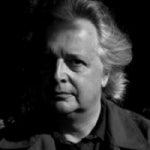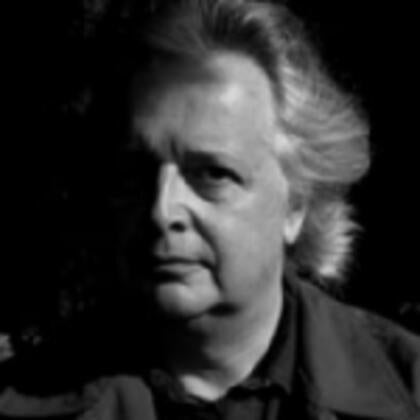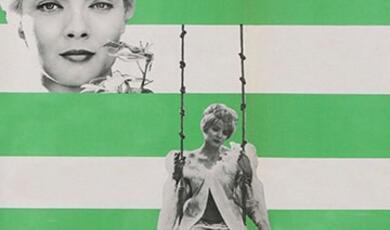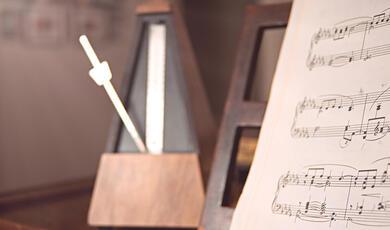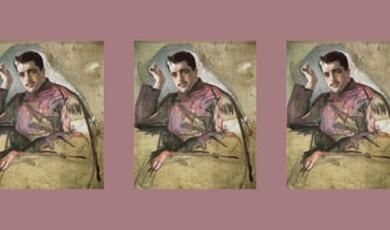The Workshop Generation
Share
- Details
- Text
- Audio
- Downloads
- Extra Reading
This talk introduces a discussion on the current state of new music education as it is practised in the UK. British children of the last 15 years have benefited from a new approach to involving them in today's classical music. Are these measures mere sticking-plasters, or is the 'workshop' really building a new generation of concert-goers? Is that even the intention?
Download Text
The Workshop Generation
Professor Piers Hellawell
EX Tchaikovsky – 6 th Symphony (iii)
When I was six, my school class was taken to an afternoon concert by the Halle Orchestra, conducted by Sir John Barbirolli. Of this momentous occasion I remember little, except that I contrived to sit beside the girl of my dreams and that Glorious Sir John addressed the audience through a terrible PA microphone, and was incomprehensible. The main work was Tchaikovsky's Pathetique Symphony, but I would not recall that fact from the performance; what fixed the work - or at least the scherzo - in my memory from then on was what happened the previous day. At school, a teacher had set up a sturdy ree1-to-ree1 tape recorder and had played us edited highlights from the 'Pathetique' - a task that, I realise now from having to do it all the time with modern technology, must have involved some labour on her part. Her intention, wonderfully realised in my case at least, was that when we came to the live event we would have something to hang onto, and would get more out of it. I doubt her admirable efforts were focused further than on keeping us in our seats for the duration, but the preparation had far-reaching consequences for me, for I remember being able to recognize the work at least two years later on the radio.
Many of us in music owe something to an encounter like this; it is easy to point out now that it was a middle-class exercise for middle-class (and broadly attentive) children, who were content with passive participation in traditional repertoire. Yet much musical activity is, after all, passive and real listening is a demanding - we could even argue an 'active' - process. Furthermore, education is about giving access and this achieved that end triumphantly; and, in any case, I long ago grew tired of apologizing for middle-classness.
It is also true that the 'passive' listening session I described was not the sum of our activity in that school: our very active cavorting round the room to the 'Music and Movement' slot, on the Home Service, would now be called a 'workshop', and were designed to promote coordination and imagination in a way far closer to much educational music activity today than our sitting in a circle listening to Tchaikovsky.
Since then every conceivable attention-grabbing presentational device has been brought to bear on that most jaundiced and critical audience, the young one. While Robert Mayer is rightly celebrated for his early work in the concert field, similar initiatives were pioneered in the 1920s by the impresario Wilfred Stephenson, much less well-known possibly because his activities were concentrated in South Yorkshire . In his autobiographyThe People's Impresario, he wrote (1)
"The first 'scholars' concert ever - as far as I know - took place inSheffield on 26 November 1924 . First on the bill was Guilhermina Suggia."
This venture drew letters of praise from many quarters, including Stephenson's regular artist contacts Clara Butt, Landon Ronald and Sir Hamilton Harty, who apparently "promptly set about launching childrens' concerts himself in Manchester . Clearly the children were expected to take a passive role - learning to be an audience, as it were. Some will snigger at what may now seem a rather patrician approach - presenting great artists to the children as if to an apprentice adult audience - but we should recall that such encounters with world-class stars do fire the talents of even young children. Only recently I heard the cellist Paul Watkins relate on radio how his ambition started with a concert visit to hear Salvatore Accardo, who signed an autograph; I had the same experience, again with the Halle Orchestra - a few years after my first encounter - hearing, and autograph-hunting from, Jacqueline du Pre, although this has not yet translated for me into a career as a cellist. The message today is that all children, not all of them potential future soloists, can and should benefit and participate, but there is still a place for the experience that opens a child to adult performance.
I was much later reminded of my first Halle visit to hear the Tchaikovsky, after I was appointed to a composer-in-residence job in Northern Ireland . On a chill Tuesday morning 20 years ago I found myself among the network of roundabouts and link roads that is Craigavon, the Province's answer to Milton Keynes . Somewhere within this lay a school where I was to assist one of the seminal figures in this field, Richard McNichol, in involving a large number of children in non-curricular musical activity. McNichol was among the first to shift the emphasis onto child-based activity, getting the children to compose music themselves, rather than to listen to someone telling them about it. I think it is fair to say that this approach has been hugely significant in the field, and has indeed become the orthodoxy of recent times - which is not to deny that it was a huge step forward, on the one hand, and that, orthodoxy or not, it does not find universal favour today. And as I'm prone to an uncontrollable disrespect for all orthodoxies, it may be worth taking a detached look today at the assumptions behind this and other approaches.
Did such an approach mark an advance on what little happened in the field for previous generations? What has been the effect of numerous such efforts on concert attendance? Is such an effect even the intention?
My particular interest in this area is that all such activities seek to address the widespread loss of ownership in art music, a crisis that formed the overall subject of my talks last year. In my third talk, Will the Last Listener Please Turn Out the Light, I said (2)
"I see the most exciting development in the field as the pioneering of new music activity for children. These involve various age-groups in reception, performance and creativity itself; built around a professional event such as a commissioned work and/or concert - and this country leads the world in this field. Without a real overall re-evaluation in state school music -and that is sadly unlikely - this is the only approach that offers long-term hope."
In other words, such activities may have to work in a cultural vacuum, providing an entrance point for children to an area that may not be part of their existing cultural experience. This perhaps distinguishes it from my Tchaikovsky introduction, which was, as I admitted just now, for children whose cultural upbringing was consonant with that listening and concert -going experience, regardless of whether they had heard that actual work before.
So it is arguable that the modern composition project for children may - depending on its stylistic dimensions - have to operate outside a sense of shared ownership: perhaps many composition projects in the age of television have to re-establish some cultural involvement with our own innate musicality - a drastic breakdown but never an irretrievable one. I do not know if my guest speakers agree about that - but perhaps we operate in the context of something missing, and it is correspondingly hard to imagine even eighty years ago such projects being conceived as a tool for opening up a new work's mysteries to audiences. Yet is it a matter of re-establishing something that was lost? How wide was the framework of listenership for emerging art music in the recent past? To think aloud for a moment, perhaps our modern strategies are not for re-establishing something that was once there, but for building something that was not: namely, access. The notion of equality of access to everything seems not to have troubled earlier societies, and it may be that the 'popularity' of great masters of the past, where that can be claimed, owes more to the select segment of society consuming their work than to any transcendental communicative gift.
For I noted also in my previous series that music we now envy as universal currency - Haydn's, for example - was, in an age of benign despotism, probably available to a tiny percentage of national population, a situation that we are not nowadays prepared to accept. Modern strategies to widen the availability of artistic expressions thus reflect recent priorities: our assault on any idea that 'such and such music is only for the likes of such and such audience' may thus be a real expansion, rather than a defensive reference to cultural ownership from a previous golden age.
This question of who consumes music endlessly intrigues me; and I am in danger of straying back to it. But the problem of rebuilding cultural involvement, if that is what it be, or else of widening its access point - is that such tasks attempt in a week or a day what properly takes a lifetime, or else, as I said, operate in a vacuum. Every one of us, who feels within them a core musical area whether Romantic lied, classical Indian Rag or the Beach Boys, owes this to formative years of experience, usually in our youth. Certainly such a process must begin with an initiation of some sort, but it requires sustained involvement rather than isolated contact.
So my question today is: what, beyond the general aspiration of 'getting kids involved', is the goal of to day's composition projects? It is entirely laudable to inform and interest youngsters in new works, for example, but is this geared to informing the cultural lives of young people by long term participation in the high art events of their time, or is it more about access to processes, ensuring an encounter with the making of music? To rephrase the question in the modern jargon of education: what are the intended outcomes of projects? If in concert-hall attendance, then my point about this being instilled through a lifetime is a factor: listenership is more than ever a matter of cultural, often tribal identity, and hard to shift. If outcomes are measured in terms of provoking creative activity, perhaps regardless of any concert- hall dimension, then the achievements can be measured much more widely and quite independently of musical style or medium. My feeling, as someone on the fringe of a specialised area, is that the field of composition-based education work has shifted, in the last 15 years or so, from concert-hall based outcomes to those that are activity-based, in other words defined by individual work undertaken by the children. Perhaps some blend of these and other outcomes is most desirable, but of course either is valuable, whether we seek participation primarily in creative activity or in live music - and, as I said, I believe we must keep sight of the fact that live listening is a participatory activity.
As I implied just now, the shift from 'passive' to child-based and activity-based work is, at the same time, the shift from listening to composing - a shift that most adults would regard as a daunting one, if for example turning up at a concert only to find themselves called upon to produce the music themselves. The parallel is glib, and in any case children are famously undaunted by molehills that adults believe to be mountains. But I do feel the need here to pause - if only, as I said, because I like challenging orthodoxies - to check that the spread of composition is a good idea. Away from aspirations about widening participation, which I am not rejecting but which must be more than unchallenged pieties if we are to fight for them, this is an interesting question in abstract terms: when does more equal better?
Of course the widest literacy is a noble aim; of course the widest musical literacy is, in its broadest sense, a noble aim. Can one argue that the widest compositional activity, rather than the deepest, is a noble rather than a false aim? I believe yes it is, in that the merest attempt at creative ordering is a beneficial activity. Yet there are, certainly, useful activities whose benefit does not translate into quantity: we would not encourage everyone in the world to have a go at dentistry. Those in charge of promoting football certainly do make the 'more is better' equation. The most chilling piece of dogma I've ever seen displayed publicly in my sheltered life was a car sticker reading 'SPORT FOR ALL'.
Of course the parallel with dentists is nonsense, for the amateur musician and the footballer can derive and give huge benefit without professional attainment; one hopes the amateur dentist doesn't get the chance. A more intelligent comparison to be teased out might be that with architecture, whose benefits do not necessarily tot up from the largest possible number of architects. Yet none of us would begrudge basic information to someone moved to learn more about architecture - which, like music, has to be realised from paper - though we might fall short of building their amateur efforts in central London . In the same way, composition as an activity can be practised happily before its results are even realised in performance - again, unlike dentistry.
An American publisher once told me that every composer wishes only that (s)he were the only composer on the planet - and most of us at some time bear this out. But if I have qualms at a world filling up with composers, it is not out of professional jealousy, but maybe in the above spirit - that I am still chewing over the widened participation in composing, and wondering to what extent a discipline that takes a lifetime of evolution can offer rapid rewards. I wish it offered me some! My experience of composition is of a painful and prolonged confrontation at the coalface, nose-to- nose with the unwelcome limits and feeble channels of imagination. These frustrations seem barren soil for the young or uncommitted, yet - I have to admit - my students, whose motivation for choosing composition courses is frequently suspect, still end up claiming in droves that this painful, frustrating business offers their greatest rewards of anything in their degree study I do believe that there are no short cuts to training: the 'discipline' we practise has not gone away, as it were. In my next talk I shall be looking at the state of composition teaching at a time when, according to Roger Scruton (3),
"even in the arts - especially in the arts - the shibboleth of creativity has been counter-productive. "
Scruton's article raises an awkward question that cannot be dismissed merely for being crashingly fogeyish. He decries the passing of the basic training that is, he believes, the only true platform for the creativity so lauded by educationalists. Mozart's greatness rests on the edifice of his initial mastery of the lingua franca, he says - and I certainly see concrete proof of this in Mozart's experiments with phrase- structure and harmonic flow. The question this raises for widened composition participation is: if an activity remains the overwhelming challenge of a lifetime to the human intellect - and composition has not got any easier, that's for sure - how do we present it in limited introductory doses as being something for everyone? When it comes to the sciences, we freely accept the technical rigours - Scruton again:
"When it comes to the hard sciences, even educationists seem preparedto admit that discipline comes first, creativity later. They recognise that chemistry taught with a regime of pure self- expression would soon degenerate into alchemy, just as "creative" physics would be hard todistinguish from witchcraft."
So how do we involve the uninitiated in manipulating musical materials in a meaningful way, if nothing comes out of nothing? We will turn to such questions shortly.
My final thought on the potential aims which I have raised is this: I believe the thrilling communion of live music - not necessarily Western, or classical, but music played and witnessed - needs listeners, and so I inevitably like the look of structures that continue to pursue a culture of attendance. Composers are notoriously bad at going to concerts, which are after all for - yes, listeners. So for all the cultural complexities of creating tribal loyalties to whatever live music, it still seems vital to pursue that particular door-opening goal, if in the face of overwhelming adverse pressures from television - the only really passive experience - and its 3-minute (or is it 2-minute?) culture. In other words I do harbour the belief that giving the maximum introduction to any kind of live performance for a crowd of youngsters, then rounding them up to attend it, not once but often, seems as valuable now as it was to me in 1961.
@ Piers Hellawell, Gresham College , 16 November 2001
Notes
1. Stephenson, W ed De Piro The People's Impressario, Thames 2000 p.46
2. Hellawell, P Will The Last Listener Please Turn Out The Light, Gresham College 2000, www.gresham.ac.ukjmusic
3. Scruton, R What Mozart has that Tracey hasn't - The Sunday Times, May 20 2001
This event was on Fri, 16 Nov 2001
Support Gresham
Gresham College has offered an outstanding education to the public free of charge for over 400 years. Today, Gresham College plays an important role in fostering a love of learning and a greater understanding of ourselves and the world around us. Your donation will help to widen our reach and to broaden our audience, allowing more people to benefit from a high-quality education from some of the brightest minds.


 Login
Login
